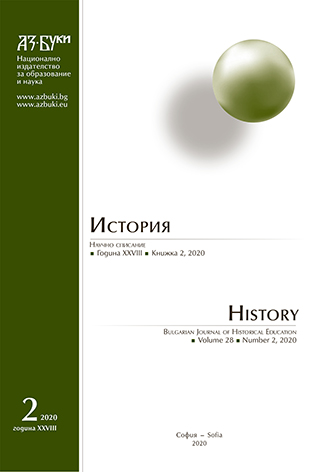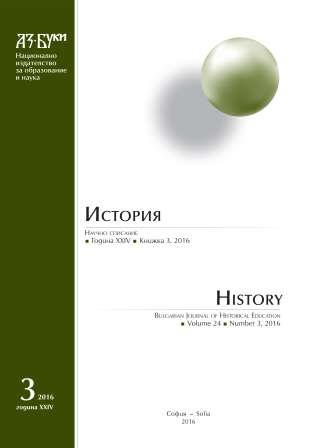
We kindly inform you that, as long as the subject affiliation of our 300.000+ articles is in progress, you might get unsufficient or no results on your third level or second level search. In this case, please broaden your search criteria.


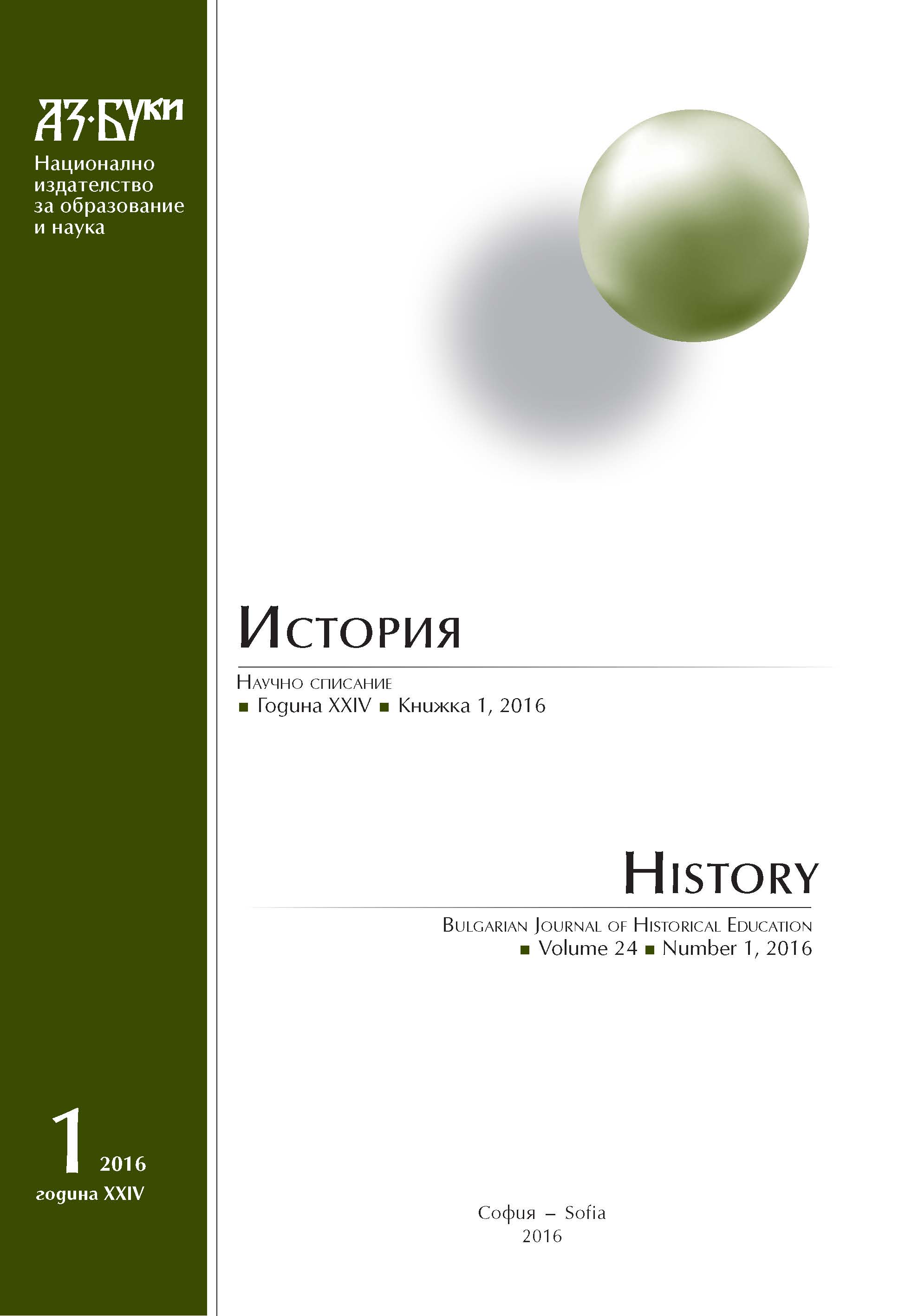

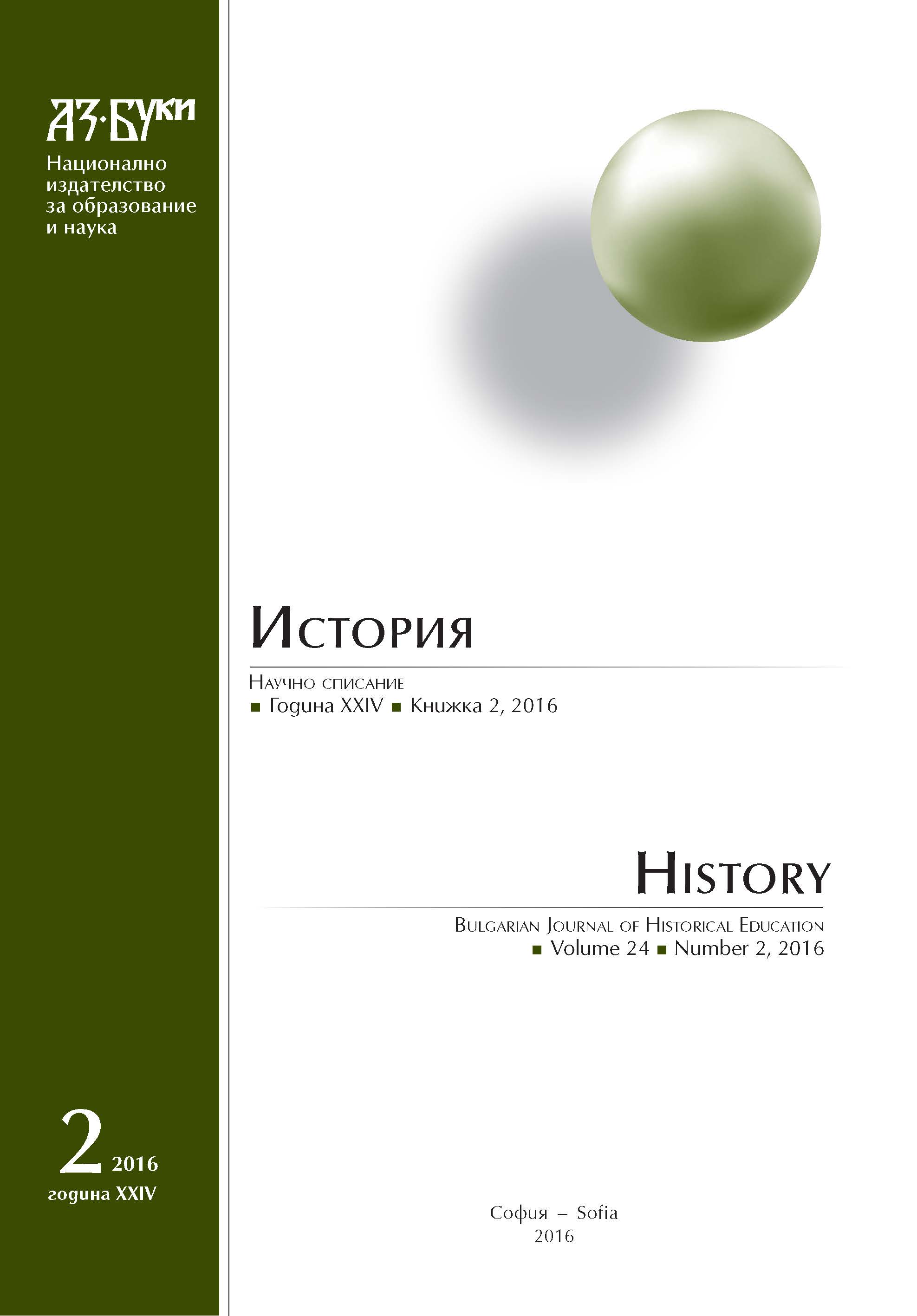

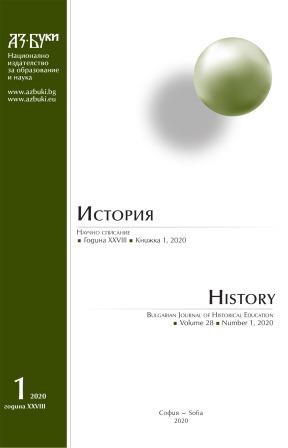

The article examines the Peace Corps programs in Central and Eastern Europe after the end of the Cold War, based on archive documents. After developing volunteer programs in Asia, Africa and Latin America for 30 years, in the early 1990s, the Peace Corps received a historic chance to expand its activities in the countries of the former Eastern Bloc and help strengthen American influence in the region. The historical reconstruction of the organization’s activities in the different countries makes it possible to outline the main goals of the Peace Corps and to determine its effectiveness as a “tool” of American “soft power”.
More...
“Crossense” is an innovative gaming technique that can successfully find its place in history and civilization classes in Bulgarian schools. It is best suited to keep students’ previous knowledge up-to-date as well as to motivate the new topic, but it is also applicable in other components of the lesson. This way a students’ creative and critical thinking has been formed through “Crossense”.
More...
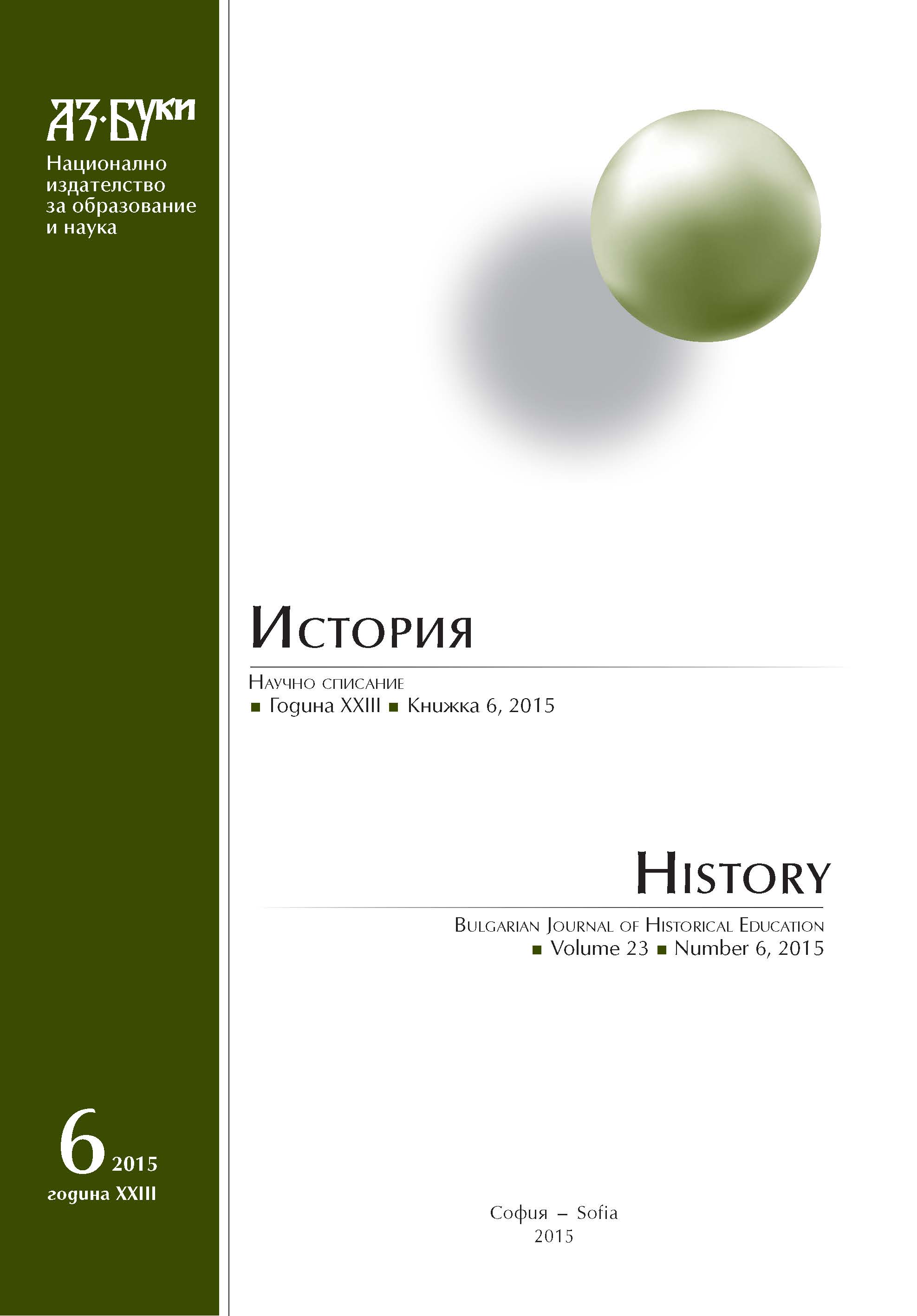
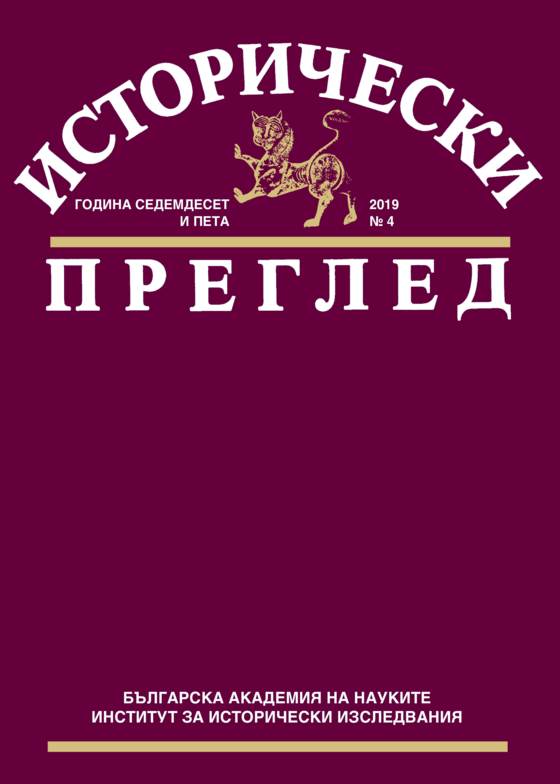
Vasil Aprilov (1789–1847) is an illustrious intellectual of the Bulgarian National Revival and contributor to the foundation of modern Bulgarian education. His works and heritage have been published and analyzed in various publications; however, the data concerning his family and genealogy are so far contradictory and inaccurate, being of subordinate importance for the major works, dedicated to Aprilov. The author resumes the publications, concerning Aprilov’s life and family, juxtaposes the genealogical data and analyzes its credibility in search of the correct family links. Besides the publications on Aprilov, the author reveals unpublished family tree of the Aprilovs, composed by Gabrovo’s local historian Iliya Gabrovski in the 1970s, stored in the State Archive – Gabrovo. Based on the analysis, the article offers a possible reconstruction of the Aprilovs’ genealogical tree.
More...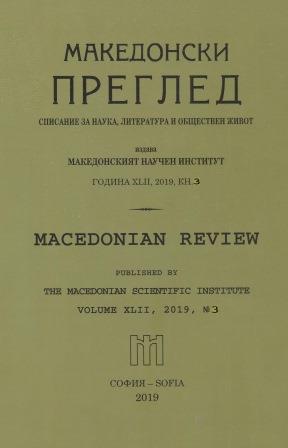
The article presents the views of Bulgarian economists about Bulgariaʼs place in the imagined world order and the international market after the Great War, formed before the national collapse. In parti-cular, it examines the opinions of the employees of a very specific structure at the Headquarters of the Acting Army – the Economic Research Section. They presented geo-economic reasons for establishing Bulgaria as a regional factor in Southeastern Europe, which they thought would save the country. The leading idea was that if this goal was not achieved, the Bulgarian national economy would simply not be “large enough, and therefore sustainable, to overcome the storms that the economic war of the future peace bears”. The Neuilly treaty, “legalizing” the Bulgarian national catastrophe with the “right” of power, proved in the long run the validity of this judgment.
More...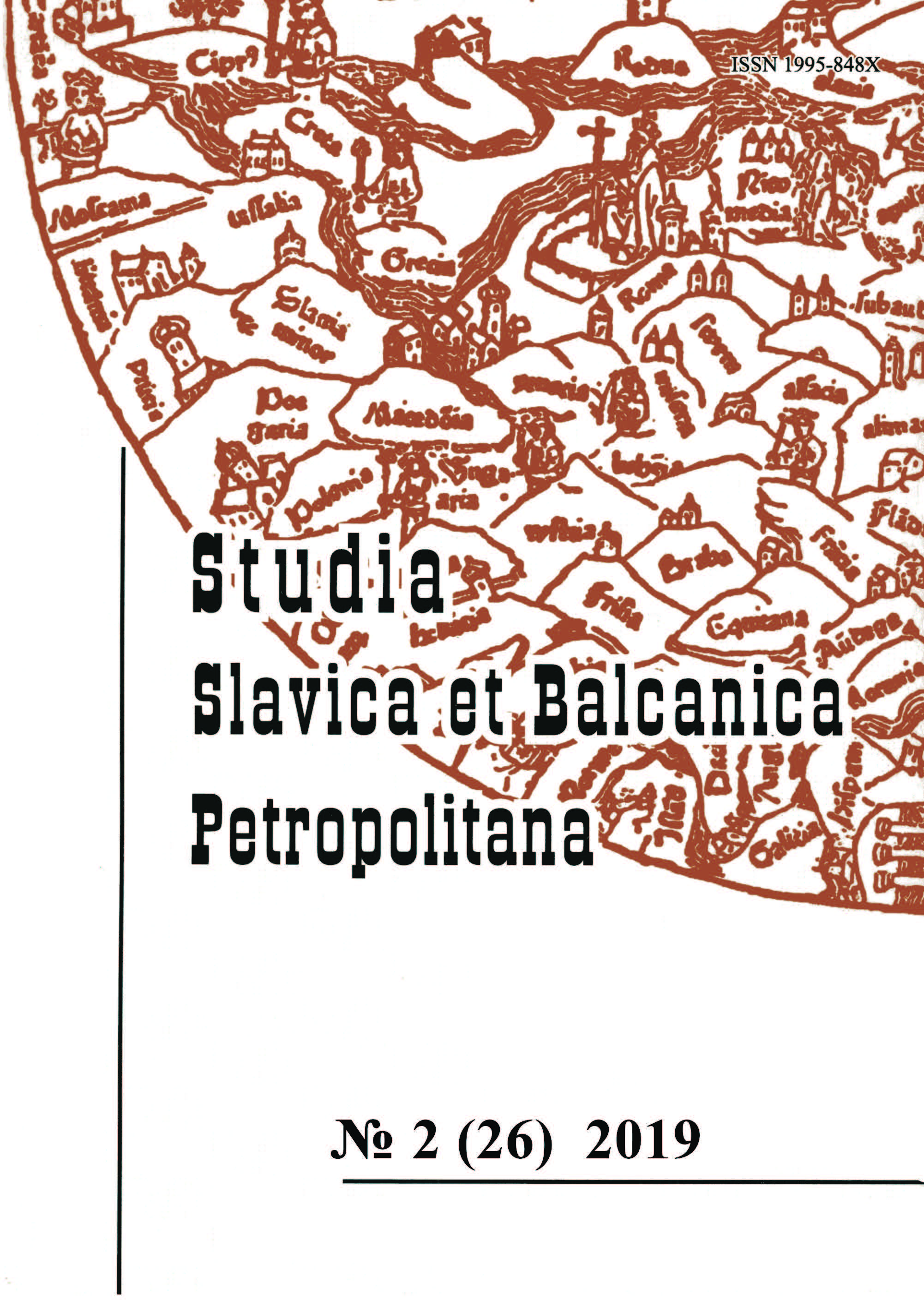
The article highlights issues related to the problems of studying the history of Eastern Europe, the definition of Slavic identity and the construction of national Slavic historical memory, which were discussed by domestic and foreign researchers in the framework of the First international St. Petersburg historical forum (October 29–November 3, 2019).
More...
The articles gathered in this issue of MemoScapes, titled Frames of Reference in Central Europe, and the Black Sea Region, in the Last Two Centuries, assess the importance of nationhood in constructing the social imaginary in the above mentioned regions. Furthermore, they emphasize the national myths, the building processes of national, local, and regional identities in the post-communist/post-soviet world as well as the role played by scholars and politicians, by mass-media and social media in forging new narratives on the past, present, and future. The role of minorities and diasporic communities in the national building processes in the region are also highlighted by a number of papers.
More...
Under the premise that language and script may constitute central elements in today’s nation building processes, this article argues that the Georgian alphabet holds a particularly important role in the articulation of a post-socialist identity for society as also for government foreign policy objectives in Georgia. By examining Batumi’s “Alphabetic Tower”, a 135m tall iron construction with the letters of the Georgian alphabet represented along a twisting double helix pattern, as well as the brand “Georgia. Made by Characters”, developed for Georgia’s status as guest of honour at the 2018 Frankfurt Book Fair, the paper demonstrates how internal nation building and external nation branding are intrinsically interlinked. Drawing on studies examining a linguistic turn in Georgian nationalism, I suggest that the script’s visual-iconographic rather than its phonographic dimension is used for intertwined identity politics and nation branding. The envisaged definition of Georgia as a nation of high and unique culture transcends the need for stabilizing new post-socialist national narratives from within. By defining itself as a nation based on cultural values, Georgia additionally attempts to position itself as culturally associated to Europe, thereby seeking to underscore the ambition of Euro-Atlantic integration.
More...
The article discusses a few controversial ideas about the ‘essence’ of the Bulgarian nation. The foundation of the autonomous Bulgarian principality (1878) arouse the controversy between the ‘ethnic’ and the ‘civic’ perspective on the Bulgarian nation. This controversy is still actual in the Bulgarian public debates and influences the Bulgarian policy toward ethnic minorities and specific groups, such as Pomaks (Bulgarian-speaking Muslims) and Gagauz (Turkish-speaking Orthodox Christians) who did not ‘meet the standard’ for the ‘real’ Bulgarians.
More...
The Greeks of Tsalka is a sub-ethnic group, whose ancestors originated from the Pontus and Erzurum regions and lived for several centuries under the rule of the Ottomans. Therefore they absorbed cultural elements of many peoples of Asia Minor – Turks, Armenians, Persians, Assyrians, etc. That can be traced in their language, folklore, and rites. As a result of the Russian-Turkish wars, they were resettled to the territory of Georgia – to the Tsalka region. The migration to the territory of the Russian Empire was accomplished in several waves – after the Russian-Turkish war of 1828-1829 until the end of the 19th century. At the time of the resettlement, most of them forget their native language and switched to Turkish.After the collapse of the Soviet Union, in Georgia, the inter-ethnic issue became very acute. In conjunction with the economic crisis, the situation forced many Greeks to leave Tsalka. Currently, the Greeks of Tsalka have a little more than 50 thousand representatives, living mainly in Greece and in southern Russia. Those who moved to Greece almost immediately faced an identity crisis, as the Greek society did not welcome them well. As a result, many Greeks of Tsalka ceased to identify themselves as Greek and tried to forge new hypotheses about their origin.
More...
The influence of Polonization, Rusification and sovietization on the Belarusian people made Belarusians one of the least historical-conscious nations in Europe. However, an important reference frame could play a role in shaping a future Belarusian national identity: the Belarusian People's Republic, a political entity that existed for several months in 1918. In the recent years, a certain trend of "returning to the roots" can be observed, in which the symbolism related to the Belarusian People's Republic seems to enjoy a special place.
More...